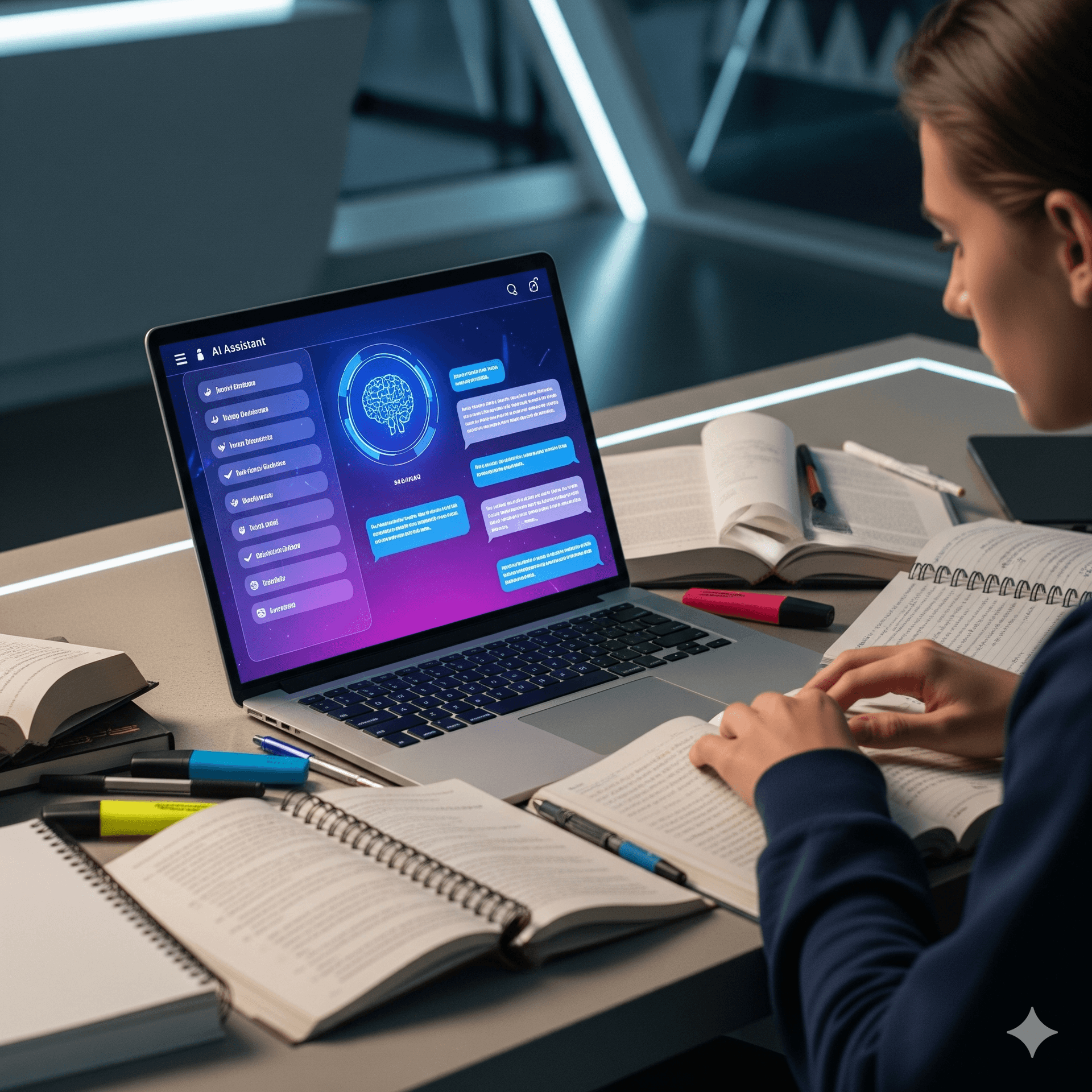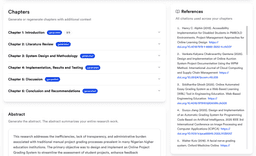Best Ways Students Can Use ChatGPT for Learning and Study (2025 Guide)
Discover how students can use ChatGPT for homework help, exam prep, research, writing support, study guides, and language learning


ChatGPT has quickly become a valuable tool for students. When used wisely, it can save time, improve understanding, and make studying easier. However, it’s important to remember that ChatGPT should be used as a learning assistant, not a replacement for your own effort.
Here are some of the most effective ways students can benefit from ChatGPT.
1. Research and Understanding Complex Topics
Instead of searching endlessly online, students can ask ChatGPT to break down difficult concepts in simple terms. You can request explanations at different levels (e.g., “Explain quantum computing like I’m in secondary school”) or ask for real-world examples that make abstract ideas clearer.
2. Writing Support and Idea Generation
Many students struggle with writing assignments. ChatGPT can help brainstorm essay topics, create outlines, suggest better sentence structures, and even check grammar. It doesn’t replace your own writing, but it makes the process faster and easier.
3. Homework and Problem-Solving Help
If you get stuck on homework, ChatGPT can guide you through solutions. For math or science, it’s best to ask for step-by-step explanations rather than just the final answer. This way, you understand the process, not just the result.
4. Study Materials and Exam Prep
Preparing for exams often requires summaries, practice questions, and study guides. ChatGPT can generate these for you in seconds. You can also ask it to create flashcards or quizzes to test your knowledge and improve retention.
5. Language Learning and Practice
Students learning a new language can use ChatGPT as a conversation partner. It can help practice vocabulary, grammar, and pronunciation by simulating dialogues. You can also ask it to translate phrases or simplify texts into beginner-friendly versions.
6. Organizing Thoughts and Projects
When faced with a big project or essay, many students feel overwhelmed. ChatGPT can act as a brainstorming partner—helping you structure arguments, organize notes, and create a logical flow of ideas.
7. Time Management and Study Plans
Students often struggle with procrastination. ChatGPT can help create daily or weekly study schedules, break down big goals into smaller steps, and suggest productivity strategies. This makes it easier to stay on track.
8. Practicing Critical Thinking
ChatGPT can be used to challenge your own ideas. For example, you can ask it to provide counterarguments to your essay or debate points. This helps you think more deeply and improves your reasoning skills.
9. Career Guidance and Skills Development
Beyond academics, students can ask ChatGPT about career paths, required skills, and interview preparation. It can even generate mock interview questions to help you practice.
10. Personal Development and Motivation
Studying can feel exhausting. ChatGPT can provide motivational quotes, suggest productivity hacks, or even recommend books, hobbies, or personal growth activities. It’s like having a supportive companion when things get tough.
Best Practices for Students Using ChatGPT
To get the most out of ChatGPT, students should keep a few rules in mind:
- Be specific in prompts – The clearer your question, the better the answer.
- Always verify information – Fact-check before using it in academic work.
- Use it as a starting point – Don’t copy answers; build on them with your own thinking.
- Combine with textbooks and teachers – ChatGPT is a tool, not a replacement.
What Not to Do with ChatGPT
- Don’t depend on it for exact citations or references (it can generate incorrect ones).
- Don’t rely on it for advanced math calculations (it may make errors).
- Don’t treat it as the final source of truth—always cross-check.
Final Note
ChatGPT can be a powerful study companion for students if used wisely. From research and writing help to exam preparation and career guidance, it offers practical support across many areas of student life.
However, success still depends on your own effort. Use ChatGPT to understand, not to avoid learning. When combined with discipline, critical thinking, and proper fact-checking, it can make your academic journey much easier and more productive.
FAQs on Using ChatGPT as a Student
1. Can students use ChatGPT for assignments?
Yes, students can use ChatGPT to brainstorm ideas, create outlines, and get writing support. However, you should not copy answers directly—always review and refine the content in your own words.
2. Can ChatGPT help with exam preparation?
Yes. ChatGPT can generate practice questions, summarize key topics, and explain difficult concepts. But it should be used alongside textbooks, notes, and past questions for best results.
3. Is ChatGPT reliable for research?
ChatGPT can help you find ideas and structure your research, but it may give inaccurate information or fake references. Always fact-check with credible sources before using the material.
4. Can ChatGPT help with language learning?
Yes. You can practice conversations, learn vocabulary, and get grammar corrections in the language you’re studying. It’s a useful supplement to formal study.
5. Is it okay to use ChatGPT for homework?
It’s okay if you use it to understand the process and learn step by step. Don’t just copy the final answer—teachers want to see your understanding, not AI-written work.
6. Can ChatGPT replace a teacher or tutor?
No. ChatGPT is a support tool, not a replacement for human guidance. It works best when combined with your teachers, textbooks, and independent study.


